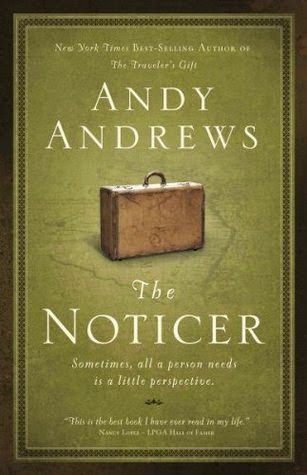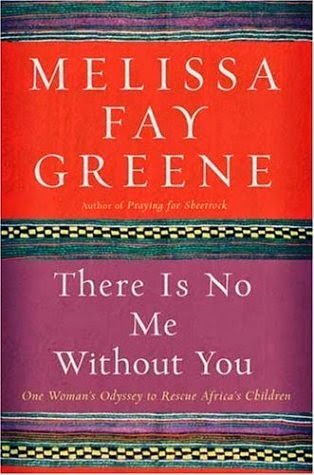By: Jean Miner,
MD, FACS; Co-Chair of the AWS Clinical Practice Committee
“See one, do one, teach one.” Most, if not all surgical trainees heard
this throughout their residency years.
Was this the best way back in the day? Probably not. Is it the best way now? Certainly not.
The dynamics of surgical education have changed drastically over the
past decade. A combination of duty hour
restrictions, new learning initiatives, technological advancements and
stringent requirements have necessitated that educators adapt new methodologies
of teaching. When we all think back to
our favorite professors and instructors, it seems as if teaching came naturally
to them, but as we now know, teaching is hard.
And it is even more difficult to do it well.
Over the past few years, I realized that my formalized knowledge of
curriculum development, assessment methods and teaching practice was inadequate
to teach the next generation of surgeons.
Coming to this awareness, I determined my own need for training to
become a better educator. At that point,
I started to search for formal opportunities and found a multitude of options
for pursuing further education.
I wanted to share some me of my findings in the hope that it may make
it easier for colleagues interested in a structured curriculum to find their
perfect match. Below, is a summary of
the options that interested me most.
After careful deliberation and a year of procrastination, I chose to
pursue a Master’s in Medical Education at the University of New England’s
program for several reasons. The
completely online aspect was essential as I didn’t want to worry about
travelling for any portion and I can complete assignments at whatever time
works for me. Secondly, the format is
such that assignments are always due on Wednesdays and Saturdays for each
course. This has allowed me to develop a
routine to meet the deadlines. The cost
is reasonable for advanced education.
Finally, the most important feature is the flexibility. After four credits in one of the two
disciplines, a student is awarded certification. I particularly liked this option because I
was uncertain whether I would be able to keep up the pace for the traditional
two year structure. The program allows
for a student who has gained certification to complete the full Master’s
program within 5 years.
I have now completed my first course, “Improving Instructional
Effectiveness” and have thoroughly enjoyed every aspect. Already, the knowledge gained from the course
has allowed me to implement effective changes within my daily teachings.
Master’s Programs
University of New England
The master's degree in Medical Education Leadership is a two-year
web-based program designed especially for working professionals that utilizes
asynchronous, distance learning within a professional community. The
33-credit hour MEL curriculum is designed to enhance your skills in a variety
of professional areas of academic medicine—curriculum, instruction, assessment,
personnel development, organizational development, leadership skills, business
and finance, and research and evaluation—through professional application
and scholarship. The master’s degree also allows for two electives (three
credits each) and culminates in an applied project. The final requirement
of the program is a professional portfolio that is a
longitudinal integration and application of learning.
Online Graduate Certificates
Program Development in Academic Medicine
This twelve-credit hour program provides you with the core
program development concepts in curriculum, instruction, learner assessment,
program evaluation and research methods in academic medicine. This set of
courses is one of the foundations for the UNE Master of Science in Medical
Education Leadership.
Leadership Development in Academic Medicine
This twelve-credit hour program provides you with the core
leadership development concepts in personnel development, organizational
development, leadership skill training, and business/finance in academic
medicine. This set of courses is one of the foundations for the Master of
Science in Medical Education Leadership.
Approximately $23,000 for full Master’s degree
The Master of Academic Medicine is offered through the Keck School
of Medicine of the University of Southern California in collaboration with the
Schools of Dentistry and Pharmacy. Our program employs a blended model,
combining on-line coursework with on-campus face-to-face sessions, one week
each March.
A Master’s Program for
Today's Challenges
Our goal is to cultivate leaders who will develop and advance educational programs for healthcare professions globally. Health professions education is continuously evolving, which requires leaders that are process experts with a broad repertoire of approaches that can be applied to varied content arenas and situations. The program addresses a challenge in health professions' education - the need for qualified educators who can model and lead change in their respective schools and programs. Graduates will be positioned to guide future generations of health professionals toward better meeting the health needs of our global society.
Our goal is to cultivate leaders who will develop and advance educational programs for healthcare professions globally. Health professions education is continuously evolving, which requires leaders that are process experts with a broad repertoire of approaches that can be applied to varied content arenas and situations. The program addresses a challenge in health professions' education - the need for qualified educators who can model and lead change in their respective schools and programs. Graduates will be positioned to guide future generations of health professionals toward better meeting the health needs of our global society.
Approximately $50,000 (not including travel for one week in CA)
The Johns Hopkins University, through an innovative collaboration of
its Schools of Business, Education, Medicine, Nursing, and Public Health, is offering a
world class degree - the Master of Education in the
Health Professions (MEHP) - that prepares a new generation of
health professionals to teach effectively for schools and training programs
related to medicine, public health, nursing, and other health professions.
The MEHP program consists of an 18-credit core in Evidence Based
Teaching--which can also be taken as a stand-alone post-master's
certificate--and a 15-credit option to focus on educational research
or educational leadership. The program format is entirely online.
Approximately $40,000
Additional Master’s Programs
Courses/ Fellowship
The six-day intensive course is designed to provide surgeons with
the knowledge and skills to enhance their abilities as teachers and
administrators of surgical education programs.
The course emphasizes the needs of adult learners and the
techniques necessary to develop an effective learning environment for medical
students, surgical residents, colleagues, and others in the health profession.
The maximum class size of 32 allows highly interactive sessions
$3,950 for American College of Surgeons members
$4,450 for nonmembers
A one year, home-site
fellowship designed to equip investigators with the skills and knowledge needed
to plan, implement and report research studies in the field of surgical
education. Following acceptance into the SERF program, each fellow is carefully
matched by the program's faculty with a SERF Adviser, a respected and
knowledgeable researcher who will serve as the fellow's mentor and consultant
on their particular project. ($1700)
Jean Miner, MD, FACS is the Program Director for General Surgery
Residency at Florida Hospital, Associate Professor, UCFCOM &
FSUSOM and serves as the Co-Chair of the AWS Clinical Practice Committee.
































